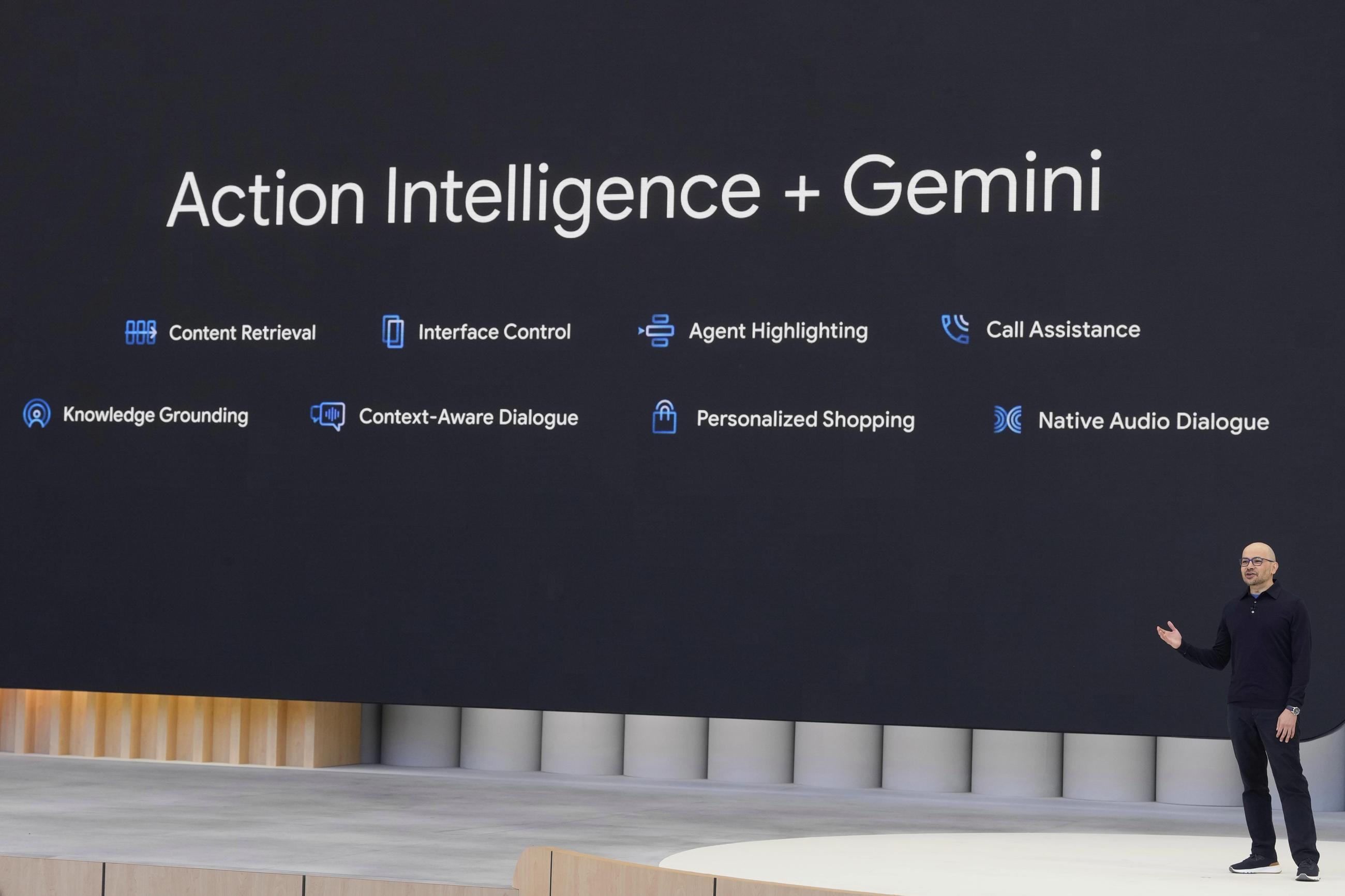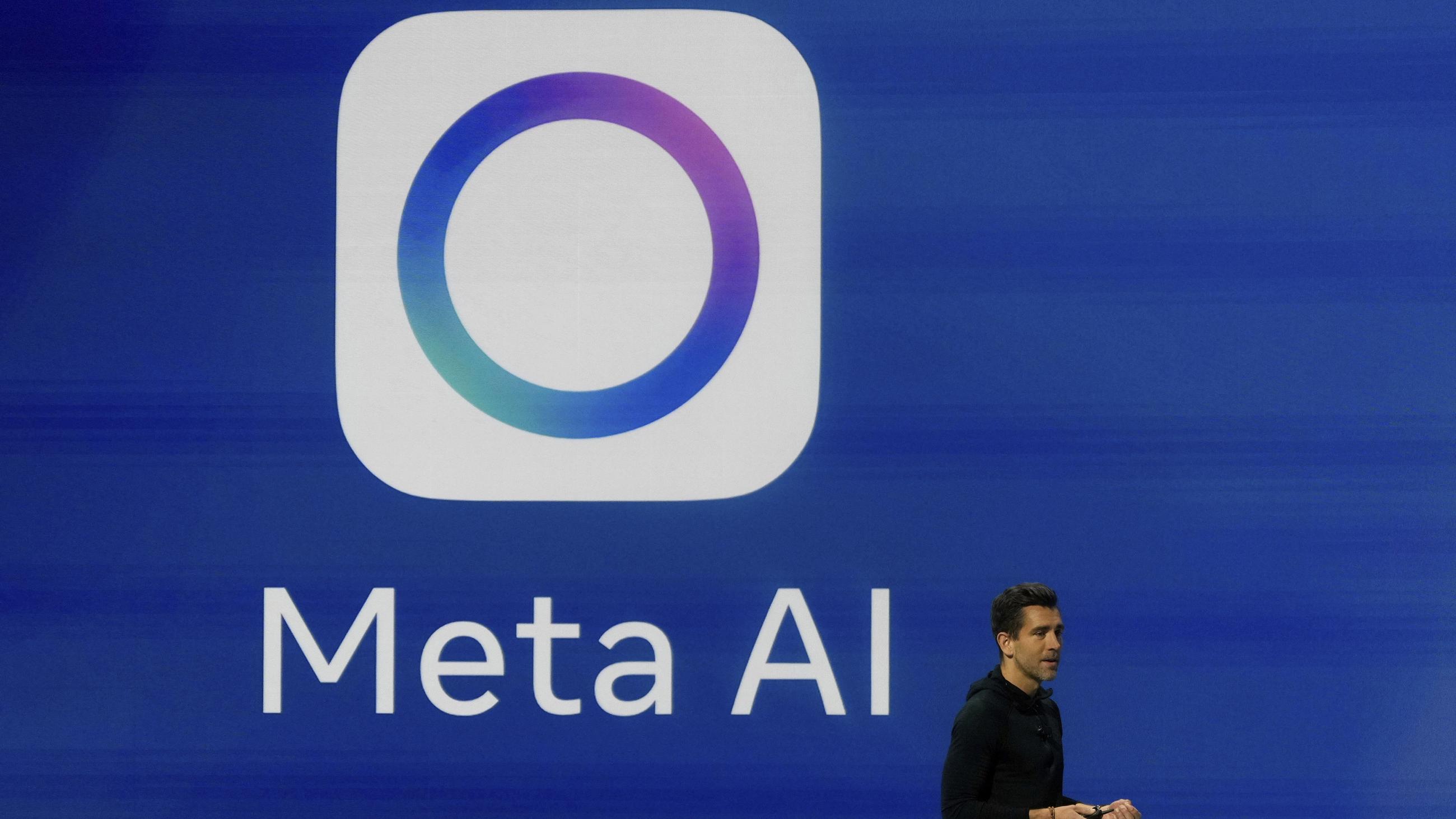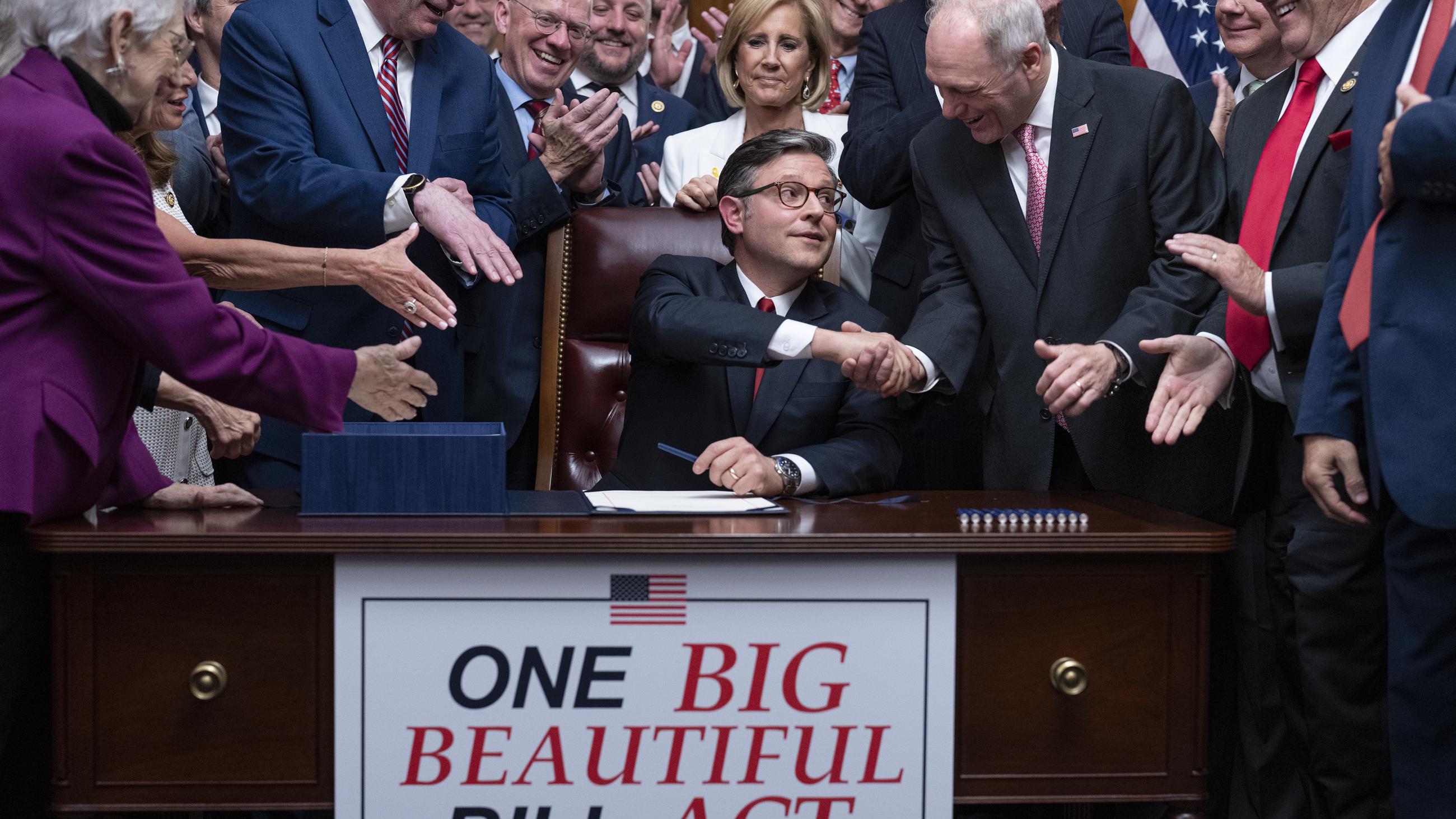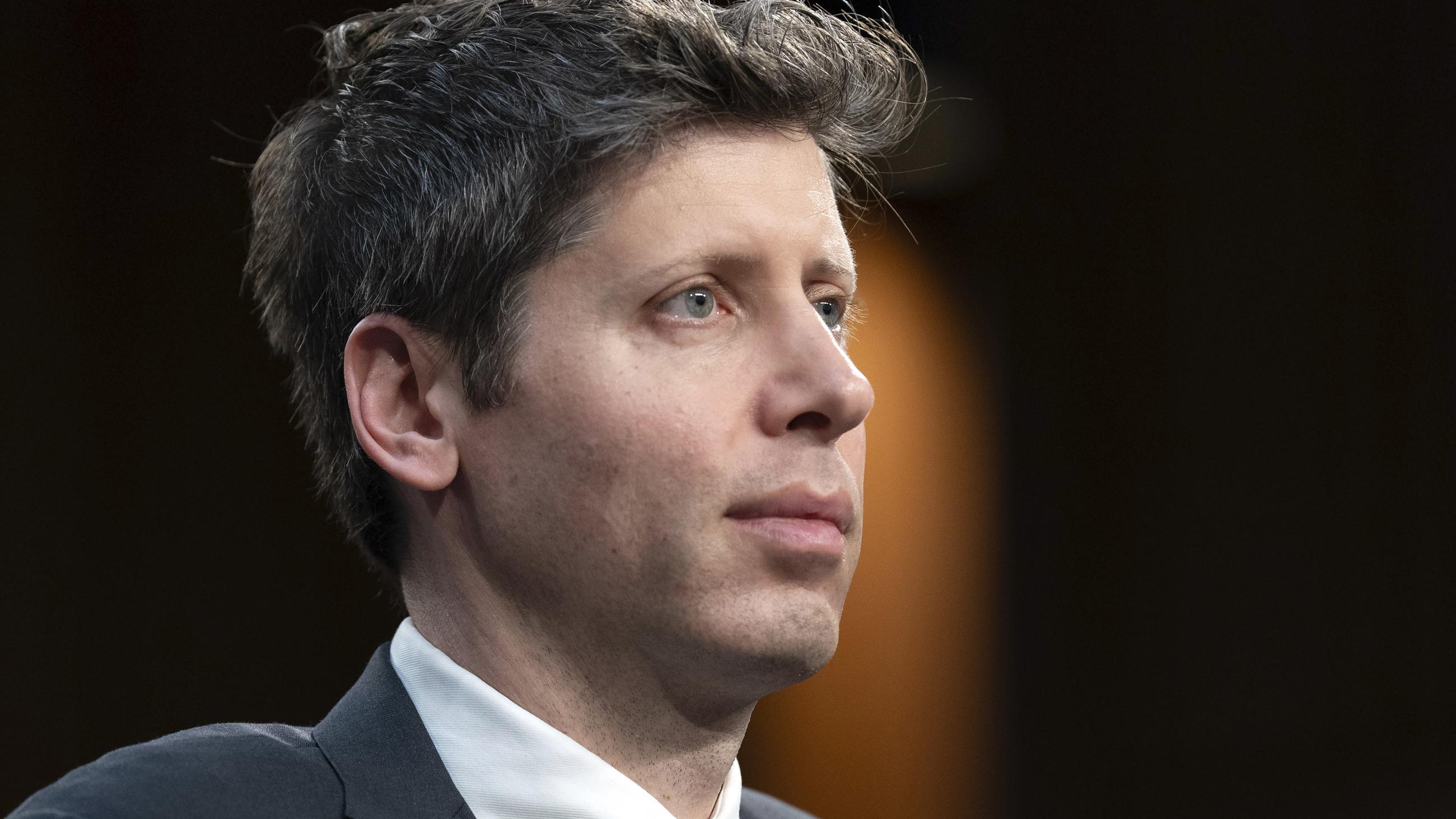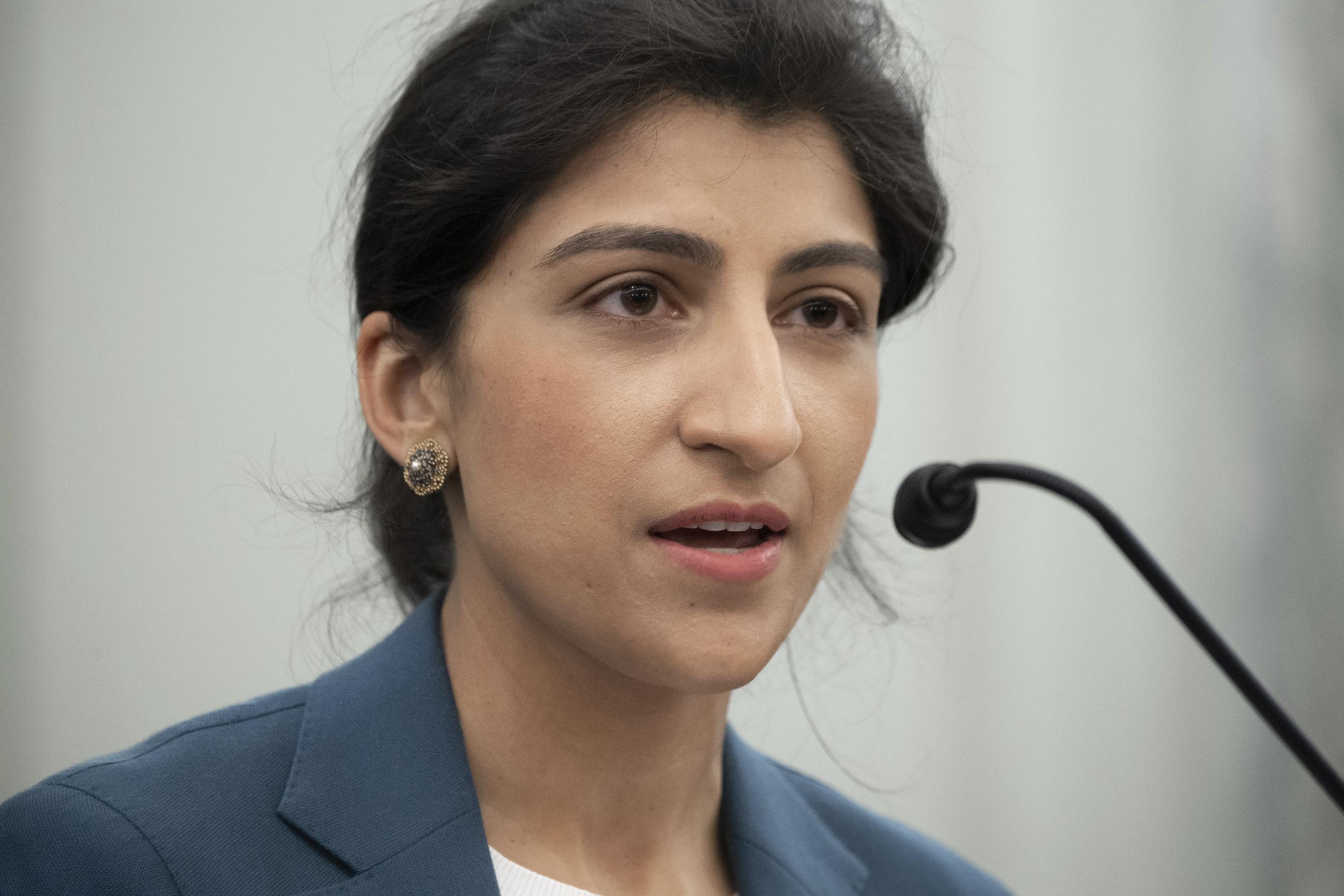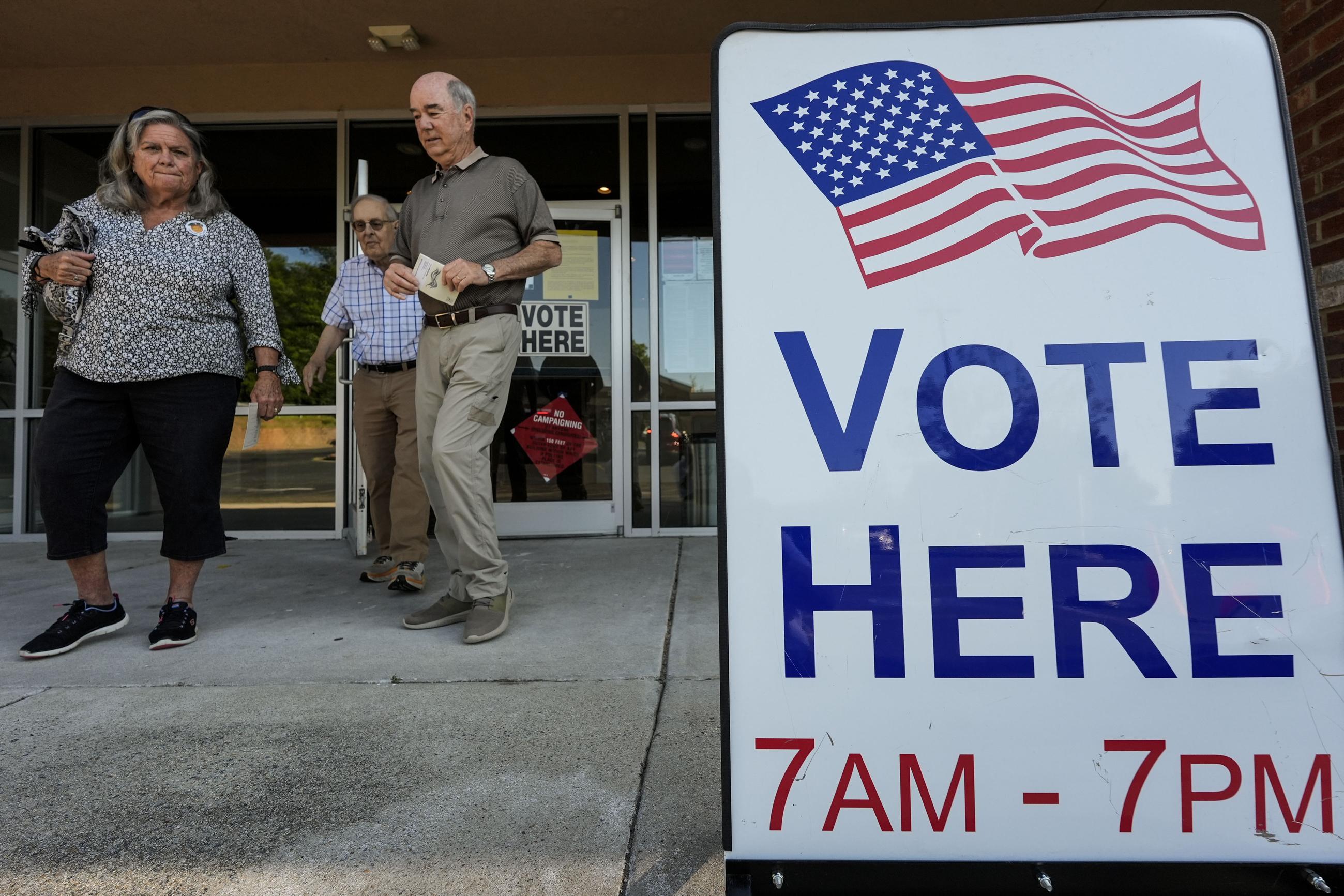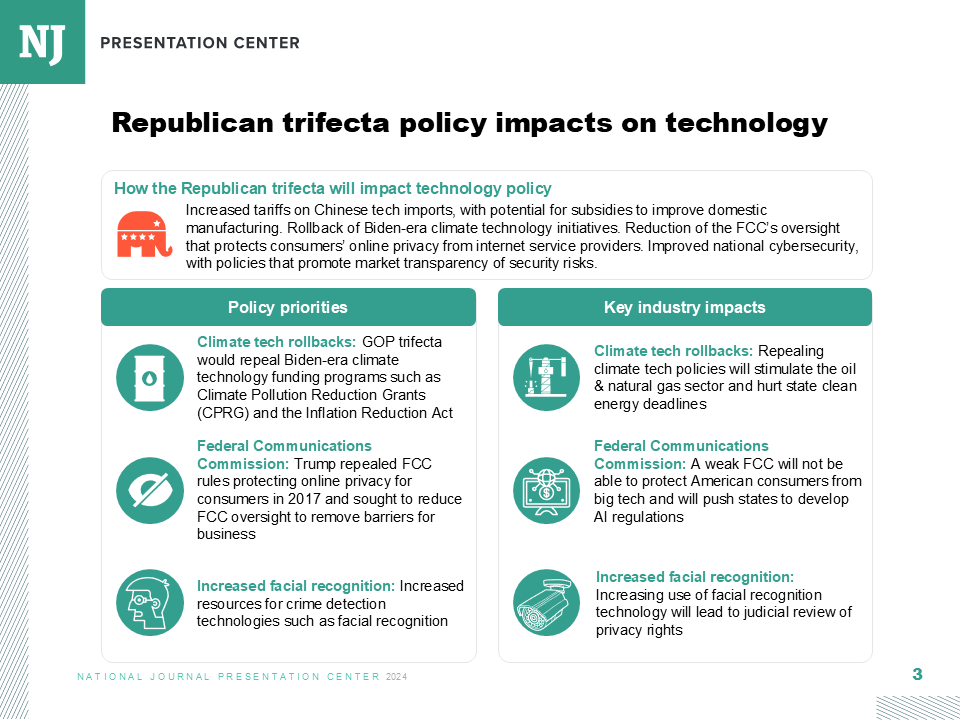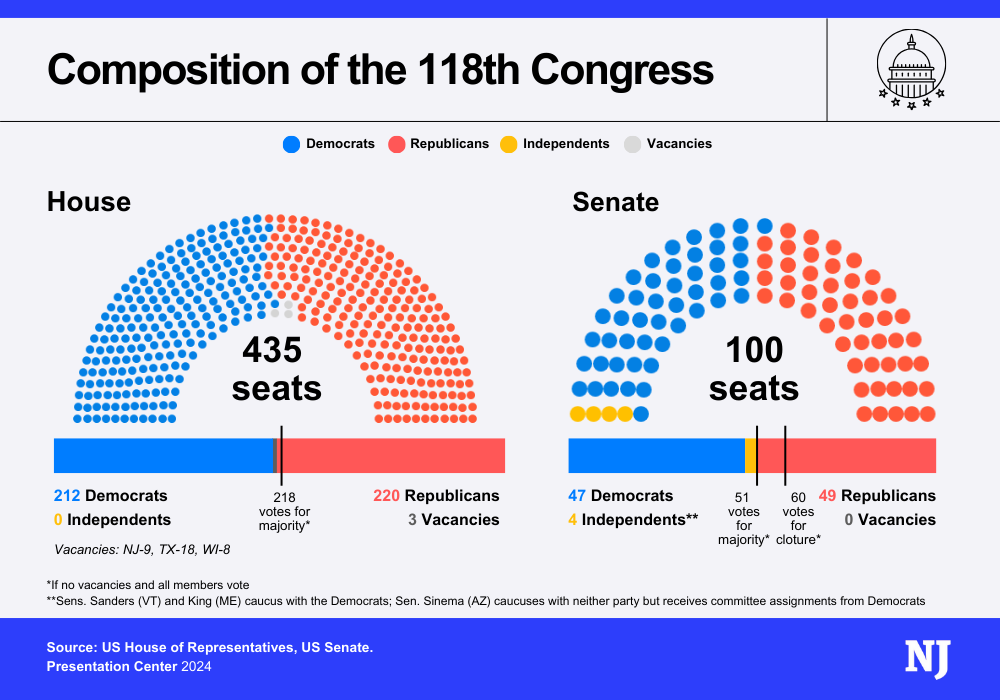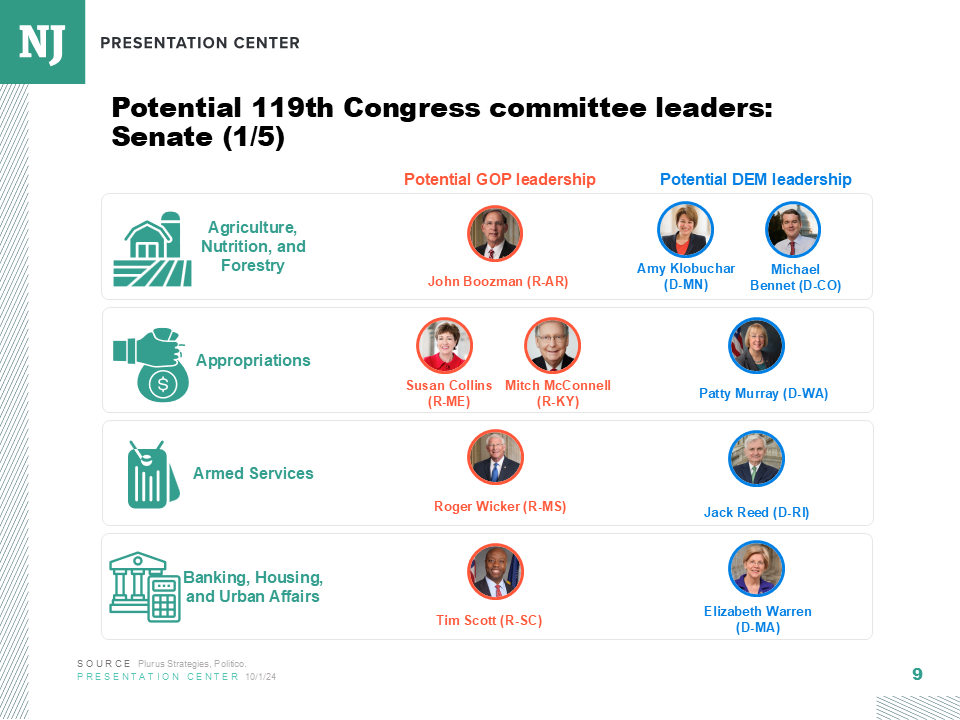As Republicans rushed to pass their reconciliation bill, an unexpected fight broke out within the party over a provision to block states from regulating artificial intelligence. The episode exposed a growing divide between the surging populist Right and the more pro-tech wing of the party.
The provision would have placed a 10-year moratorium on state AI regulations. It raised some eyebrows when it was suddenly brought up during a House Energy and Commerce Committee hearing on the reconciliation bill, but it was approved along party lines and with the full support of Chair Brett Guthrie. By the time the bill was sent over to the Senate, the more-populist wing of the party mobilized against the moratorium.
Ultimately, the provision was stripped from the Senate version of the bill in a 99-1 vote.
The moratorium’s defeat marked the biggest win to date for the populist side and may be a prelude for what’s to come.
“It was a perfect storm that led to the populist revolt against this effort,” said Adam Thierer, a resident senior fellow at the conservative R Street Institute. “Nine years ago, this probably would have moved without much controversy in conservative circles, when there was still more of an alliance on this front, but now it has proven to be a divisive issue, and ultimately populist conservatives beat the tech Right on this front and won the day.”
While AI policy may be the current battleground, the rift extends to almost all areas of tech policy—from social media regulation to big-tech antitrust enforcement—as the populist Republicans seek to use the power of government to shape the tech world.
In January, some 30 right-wing advocates and activists signed onto a manifesto laying out their vision for how the GOP should regulate technology. A Future for the Family: A New Technology Agenda for the Right laid out 10 points for Republicans to pursue when regulating technology, including safeguards against online pornography and AI sex bots, increased barriers for children accessing social media, improved data-privacy protections, and protections against AI taking away human jobs.
Daniel Cochrane, a senior research associate with the Center for Technology and the Human Person at the conservative Heritage Foundation, said that, far from offering a new direction for the party, the populist wing is simply returning to conservative principles, particularly a suspicion of centralized power—be it government or industry.
“You need to attack the underlying governing philosophy that says you need these highly centralized centers of experts, whether they be in the government or in corporate America, calling the shots for the rest of society,” Cochrane said. “That's the crux of what's going on here. … It's a rejection of a governing philosophy, not just kind of a particular form.”
Jennifer Huddleston, a senior fellow in technology policy for the libertarian Cato Institute, said that while the Left has long been wary of large tech firms, conservatives started to agree with that way of thinking during the first Trump administration.
“Around antitrust is when you start to see this resurgence of ‘big is bad’ and a suspicion of many leading tech companies due to disliking the particular political or policy positions that they seemed to be taking at the time,” Huddleston said, adding that this marked a shift “away from what has traditionally been at the heart of these laws, which has been about the consumer, and instead is focusing on policymakers' views of how a market should be run, how many competitors should be in the market, or how those competitors should take certain policy actions.”
Republicans’ tech skepticism has been growing for years, as they have increasingly accused social media giants and Google of bias against conservatives by such actions as deprioritizing right-wing content and intentionally sending GOP funding emails to the spam folder.
Studies of social media bias have not backed those claims, and in 2024 Google defeated a lawsuit from the Republican National Committee over the spam-email claims.
Nevertheless, such charges led to antitrust cases launched against Meta and Google during President Trump’s first term, along with increasing calls from Republicans to repeal or reform the liability shield for social media companies.
The issue came to a significant head after multiple social media companies booted Trump off of their platforms in the wake of the Jan. 6, 2021, insurrection attempt.
GOP’s distrust of big tech
Distrust of big tech persists among both elected officials and Republican voters. A Pew Research Poll from 2024 found that 84 percent of Republicans said social media companies had too much power and influence over politics, compared to 74 percent of Democrats; and 71 percent of Republicans said social media had had a mostly negative effect on the country, compared to 59 percent of Democrats.
Despite the mistrust, Republican voters were just as split on government action as GOP legislators are today, with just 45 percent saying that major technology companies should be more heavily regulated, the Pew poll found.
While the party has been split on the idea of government regulation, some GOP legislators at both the state and federal level have focused on child-safety concerns surrounding social media and online pornography sites, an area with much friendlier polling data when it comes to potential regulation.
A 2023 Pew Research poll found that 83 percent of Republicans supported requiring parental consent for minors to create a social media account, 72 percent supported age verification for social media accounts, and 70 percent supported time limits for minors' social media usage.
“They're not really like technology companies that are building more productive things. They're digital narcotics companies; they're getting people hooked online,” said Tim Estes, the CEO and founder of AngelQ, a child-friendly AI company. “Most of the people in the pro-family Right do not want deep socialist regulations of these companies. They want liability that's equal in the online world to meet the offline world.”
Deeply red states including Tennessee, Florida, Utah, and Louisiana have led the charge in enacting laws that place limits on a minor's access to social media, along with strict age-verification requirements for adult content.
Some civil rights organizations such as the ACLU, along with more-conservative industry-friendly organizations like NetChoice, R Street, and Cato, have opposed these laws in court, claiming that they will infringe or at least chill constitutionally protected speech for adults.
In June, the Supreme Court upheld a Texas law requiring users to provide age verification to gain access to sites that display adult content. The law was originally blocked by a Reagan-appointed judge, but the conservative majority on the high court found that the law “only incidentally burdens the protected speech of adults.”
Estes said that conservative opposition to these laws largely comes from groups backed by the tech industry. NetChoice, a frequent legal opponent to social media regulations, is a conservative industry group that boasts Amazon, Meta, and Google among its members.
KOSA’s losing battle
In Congress, at least on the social media battlefront, the split between the anti-regulation and populist wings is murky. Senate Commerce, Science, and Transportation Committee Chair Ted Cruz was the leading proponent of the 10-year moratorium on state AI legislation, but he is also a cosponsor of social media legislation including last year’s Kids Online Safety Act, and this year’s Kids Off Social Media Act, which blocks anyone under 13 from creating a social media account while blocking algorithmic suggestions to anyone under 17.
KOSA, sponsored by Democratic Sen. Richard Blumenthal and Republican Sen. Marsha Blackburn, has been kicking around the Senate for years. It would require social media companies to protect children on their platforms from a litany of potential harms, including addictive behavior, mental health disorders that may be linked to online use, online bullying, and sexual predation. It passed the Senate in a 91-3 vote last year, but Speaker Mike Johnson refused to bring the bill to the House floor over free speech issues.
“There’s still some concern about the free speech components of that and whether it might lead to further censorship by the government of valid conservative voices, for example,” Johnson said last year. “I think all of us, 100 percent of us, support the principle behind it, but you've got to get this one right, when you’re dealing with the regulation of free speech.”
Blackburn and Blumenthal reintroduced KOSA in May, with both Senate Majority Leader John Thune and Minority Leader Chuck Schumer signing on as the first cosponsors.
For antitrust actions, the lines are a little less blurry though some seeming contradictions remain. The Trump administration seems poised to continue the big-tech-antitrust crusade it kicked off during the final days of its first term, having appointed Mark Meador, who has previously called out the dangers of monopolies, to be the GOP’s third member of the Federal Trade Commission. Meador was approved by the Senate in a party-line vote. The Trump FTC and Justice Department have also chosen to fully adopt stricter merger guidelines that were first introduced during the Biden administration.
But many in the GOP ranks, including Cruz, remain wary of strong antitrust enforcement, and even some on the populist side hope that the Trump administration takes a careful approach to antitrust.
A divide over deregulation
Regulating AI remains the main tech area where the two sides are furthest apart. Some populist Republicans such as Sen. Josh Hawley remain highly skeptical of AI and favor legislation that would require licensing of the most advanced AI systems, as well as protections for certain jobs like long-haul trucking.
At the same time, more-traditional Republicans including Thune continue to argue for a “light touch” on AI regulation.
The White House so far has put its weight behind the deregulation camp when it comes to AI. On his first day in office, Trump scrapped President Biden’s executive order on AI. In the months since, the administration has called for deregulation of AI and has pushed executive-branch agencies to increase their use of the technology to perform government functions.
But even within the administration, there remain some contradictions. In February, Vice President J.D. Vance gave a speech at the AI Action Summit in Paris, where he said regulating AI would “not only unfairly benefit incumbents in the space, it would mean paralyzing one of the most promising technologies we have seen in generations.”
Vance also promised, however, that the Trump administration “will maintain a pro-worker growth path for AI so it can be a potent tool for job creation in the United States,” indicating at least some support for anti-automation regulation.
Thierer said the GOP can’t pick and choose when it likes big tech and when it dislikes it, if it wants the U.S. to lead the world on AI.
“At some point you have to ask yourself: Who's going to make the multibillion-dollar investments to compete against China and lead the world in American AI if you're also cutting off large technology companies at their knees?” Thierer said.
Cochrane said that while the government needs to avoid overregulation, the concentration of power by certain Silicon Valley companies justifies more “robust” enforcement to restore competition and protect the needs of the American people.
Using Meta as an example, Cochrane said the company is throwing its giant bank account around to license and hire away the top talent of smaller potential rivals in the AI space while avoiding any triggers for traditional antitrust enforcement.
“They're just gutting these companies for talent and resources, so they're getting everything they want without doing it the normal way,” he said. “That’s an example of where we probably need some more robust antitrust regulation enforcement.”
Thierer said the populist Right has the upper hand and likely will retain it—at least for now—but that may not change too much about how Republicans legislate.
“It could be that we'll have a series of debates that'll play out. In all likelihood this ends in Congress just doing a whole hell of a lot more nothing,” he said. “In one way, it's like nothing much has changed. Congress is still a non-actor—for different reasons, however, than they were in the past.”

